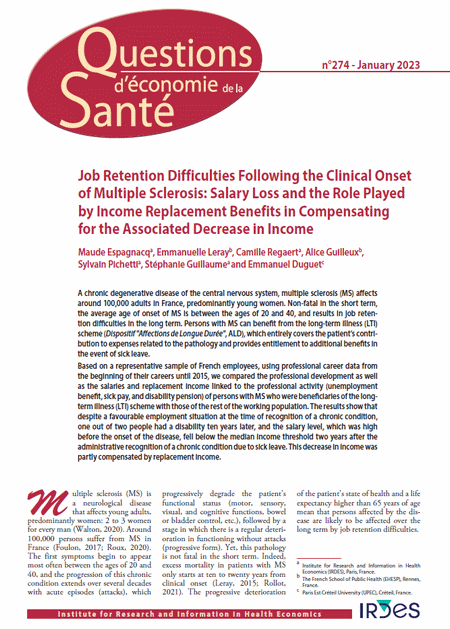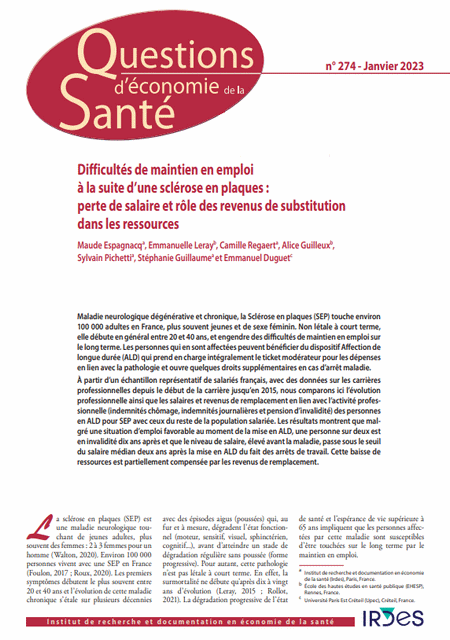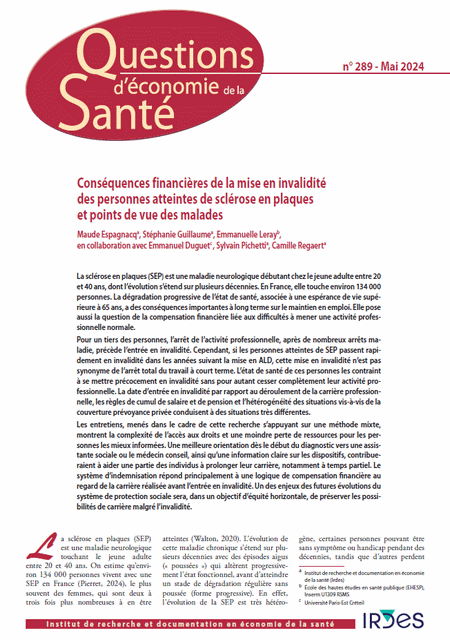Job Retention Difficulties Following the Clinical Onset of Multiple Sclerosis: Salary Loss and the Role Played by Income Replacement Benefits in Compensating for the Associated Decrease in Income
Espagnacq M. (IRDES), Leray E. (EHESP), Regaert C. (IRDES), Guilleux A. (EHESP), Pichetti S. (IRDES), Guillaume S. (IRDES) and Duguet E. (University Paris Est Créteil-Upec)
Questions d'économie de la santé (Issues in Health Economics) n° 274 - January 2023
ABSTRACT
A chronic degenerative disease of the central nervous system, multiple sclerosis (MS) affects around 100,000 adults in France, predominantly young women. Non-fatal in the short term, the average age of onset of MS is between the ages of 20 and 40, and results in job reten¬tion difficulties in the long term. Persons with MS can benefit from the long-term illness (LTI) scheme (Dispositif "Affections de Longue Durée", ALD), which entirely covers the patient's contribution to expenses related to the pathology and provides entitlement to additional benefits in the event of sick leave.
Based on a representative sample of French employees, using professional career data from the beginning of their careers until 2015, we compared the professional development as well as the salaries and replacement income linked to the professional activity (unemployment benefit, sick pay, and disability pension) of persons with MS who were beneficiaries of the long-term illness (LTI) scheme with those of the rest of the working population. The results show that despite a favourable employment situation at the time of recognition of a chronic condition, one out of two people had a disability ten years later and the salary level, which was high before the onset of the disease, fell below the median income threshold two years after the administrative recognition of a chronic condition due to sick leave. This decrease in income was partly compensated by replacement income.
See also Questions d'économie de la santé n° 274 in French: Difficultés de maintien en emploi à la suite d'une sclérose en plaques : perte de salaire et rôle des revenus de substitution dans les ressources.
See also Report n° 589 in French: Conséquences de la sclérose en plaques sur les parcours professionnels en France. Étude EMOJI (Effects of Multiple Sclerosis on Occupational TraJectorIes)
See also Questions d'économie de la santé n° 289 in French: Conséquences financières de la mise en invalidité des personnes atteintes de sclérose en plaques et points de vue des malades.



